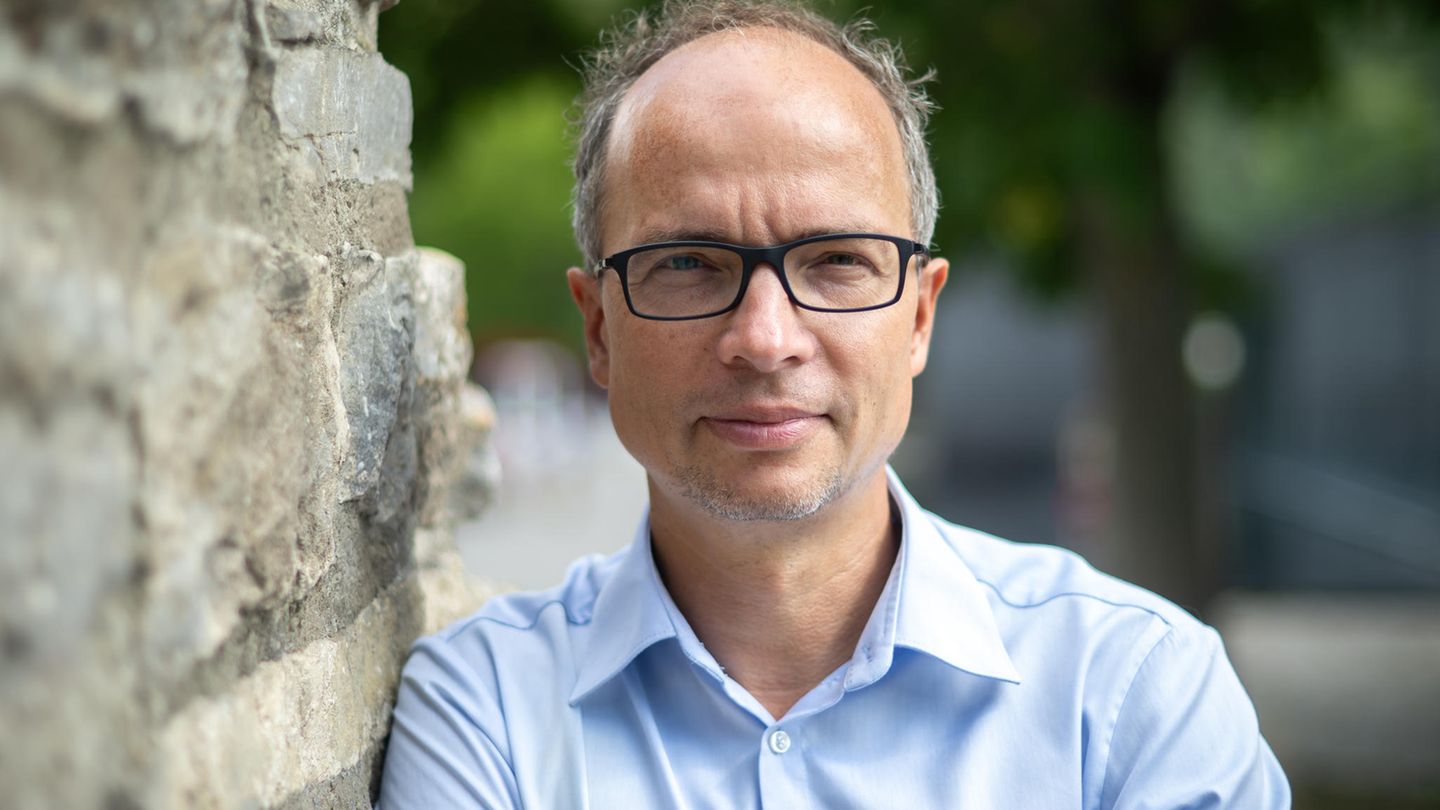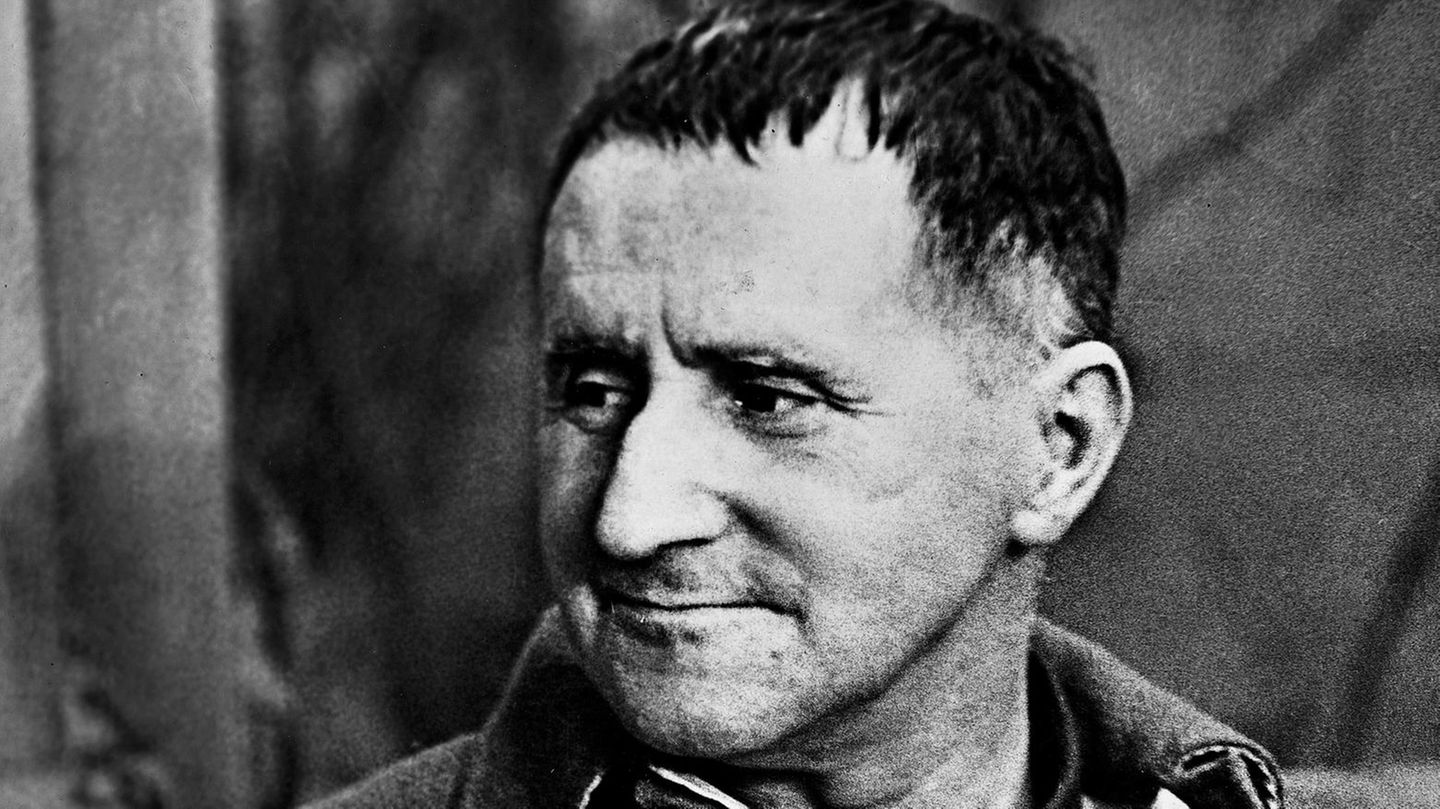AfD and BSW are likely to be the biggest winners in the third state election in September. After that, everyone should check their reflexes.
It was quite a while ago, when the sons were still small and extremely cute, when I occasionally went on trips with them alone, just the three of us, without their mother, who had decided to go back to university. Even if the children followed my instructions sporadically at best, they didn’t question me fundamentally, as I do with myself, but trusted what I did. It was a feeling that, like so many things from that time, I miss sorely.
Once we spent the autumn holidays in Buckow on the Schermützelsee, with an E and not an A, exactly where Bertolt Brecht spent the summers more or less elegiacally with Helene Weigel (and certainly other women). We rode our bikes around the lake or sailed across it in a cutter. We fed the swans ice cream cones and ate candy floss in the traveling circus. We climbed up tree stands and made the Himalayan balsam jump.
Everything was very pretty in the so-called Märkische Schweiz, and I noticed again that when we Germans find an area in Germany particularly beautiful, we tend to name it after other lands. That’s why there is a Switzerland in Saxony, while in the southern Palatinate and at home in Thuringia there are supposedly Tuscan hills. But that’s just a side note.
One day we drove over to Neuhardenberg, where the GDR had tried in vain to create a real socialist Marxwalde, and visited the castle and the Schinkel church, in which a red illuminated heart is displayed in a small altar. My sons stared at the mummified organ, half shocked, half fascinated, and I, who once again had only a vague idea, immediately looked up Wikipedia on my iPhone 3GS. Back then, it was still a crazy thing.
I read: The heart beat in Karl August Prince von Hardenberg, the man who, as Chancellor, had modernized Prussia, including the emancipation of the peasants, freedom of trade and the emancipation of the Jews, and who, even though it never came into force, had written a constitution for his country. A progressive spirit, a great reformer – and with comparatively little nationalistic pathos.

© Sascha Fromm
Middle East
stern author Martin Debes reports as a reporter primarily from the five eastern federal states. Every other weekend, the Thuringian native writes here about what he has noticed between Rügen and Rennsteig.
This made the burial arrangement at the site that the Prussian King Frederick William III had given to Hardenberg all the more absurd. Of all things, a waxed heart tied with hemp, which legend says is still beating like Barbarossa, stands for the liberal and enlightened Prussia that today, in its remnants, operates under the name of its former electorate: Brandenburg.
It is a strangely constructed structure with an historically determined imbalance. The legacy of Wilhelminism, with all the horror that emerged from it, can be found above all in the much more populous Berlin, which is surrounded by a Brandenburg cocoon of forests, water and lots of Brandenburg sand.
Actually, there are two cocoons. The smaller part of the country is what, if you prefer bad puns, you would call the commuter belt. A few hundred thousand Brandenburgers are probably working Berliners. Most of them live in Potsdam, the unofficial 13th district, which is now as gentrified as Friedrichshain, just sans souci. The housing shortage in the capital is so great that people from the capital are even invading Königs Wusterhausen.
“I feel so Brandenburg” – where the AfD is gaining momentum
The rest of Brandenburg, on the other hand, seems to be slowly dying out, and not just in the villages. Even Cottbus and Frankfurt an der Oder have lost more than a third of their inhabitants. Yes, there is the steel industry and, more recently, Tesla. But the landscape in between often looks like a wasteland dotted with old LPGs and abandoned industrial plants.
“I feel so empty today. I feel like Brandenburg,” sang Rainald Grebe with devastating precision. “And,” to steal a line from his Thuringia ode, “the next Konsum is here.”
This, of course, has consequences. In the Berlin suburb of Potsdam, the Greens won first place in the European elections in June with 15.5 percent, closely followed by the SPD, CDU, AfD and BSW. In Cottbus, the AfD won with 29.2 percent, the Greens landed at 4.5 percent – and the BSW at 15.6 percent.
And in Neuhardenberg, where the prince’s heart lies and half of the approximately 2,000 eligible voters voted? The AfD received 43.4 percent and the BSW 14.7 percent, while the Greens were barely measurable.
Those who have their worldview better sorted than I do would probably write: a solid majority of fascists and Putinists. Well, yes. I don’t want to negate the right-wing extremism of the AfD or relativize the brutal populism of the BSW, but I claim with Scholzian stoicism that such a description of the common Neuhardenberger would be too simplistic for me.
Of course I don’t know these people. But I know people. They are not one-dimensional creatures, even if they live in the accession area. Incidentally, Brandenburg is no more Brandenburg than – yes, I repeat – East Germany is simply East Germany, or Märkische Schweiz is Saxon Switzerland, not to mention the real Switzerland.
So when the state election results from the former Prussian heartland come in on Sunday evening and the AfD is in first place overall or at least in most areas, while the BSW is in double figures: Then it would be helpful if, for once, there was no reflexive polemics, but instead a deep breath and then a differentiation: between city and country, between Potsdam and Eberswalde or, again, between AfD voters and extremists or BSW supporters and Stalinists.
Generalized judgments often have the opposite effect to what they may intend. And perhaps someone will think of the poem that Brecht wrote one summer, in 1953, at Schermützelsee about the propaganda of the totalitarian rulers of the time.
His very special Buckow elegy called “The Solution” famously ends like this: “Wouldn’t it be simpler if the government dissolved the people and elected another one?”
You can find all of Martin Debes’ columns published so far .
Source: Stern
I have been working in the news industry for over 6 years, first as a reporter and now as an editor. I have covered politics extensively, and my work has appeared in major newspapers and online news outlets around the world. In addition to my writing, I also contribute regularly to 24 Hours World.




